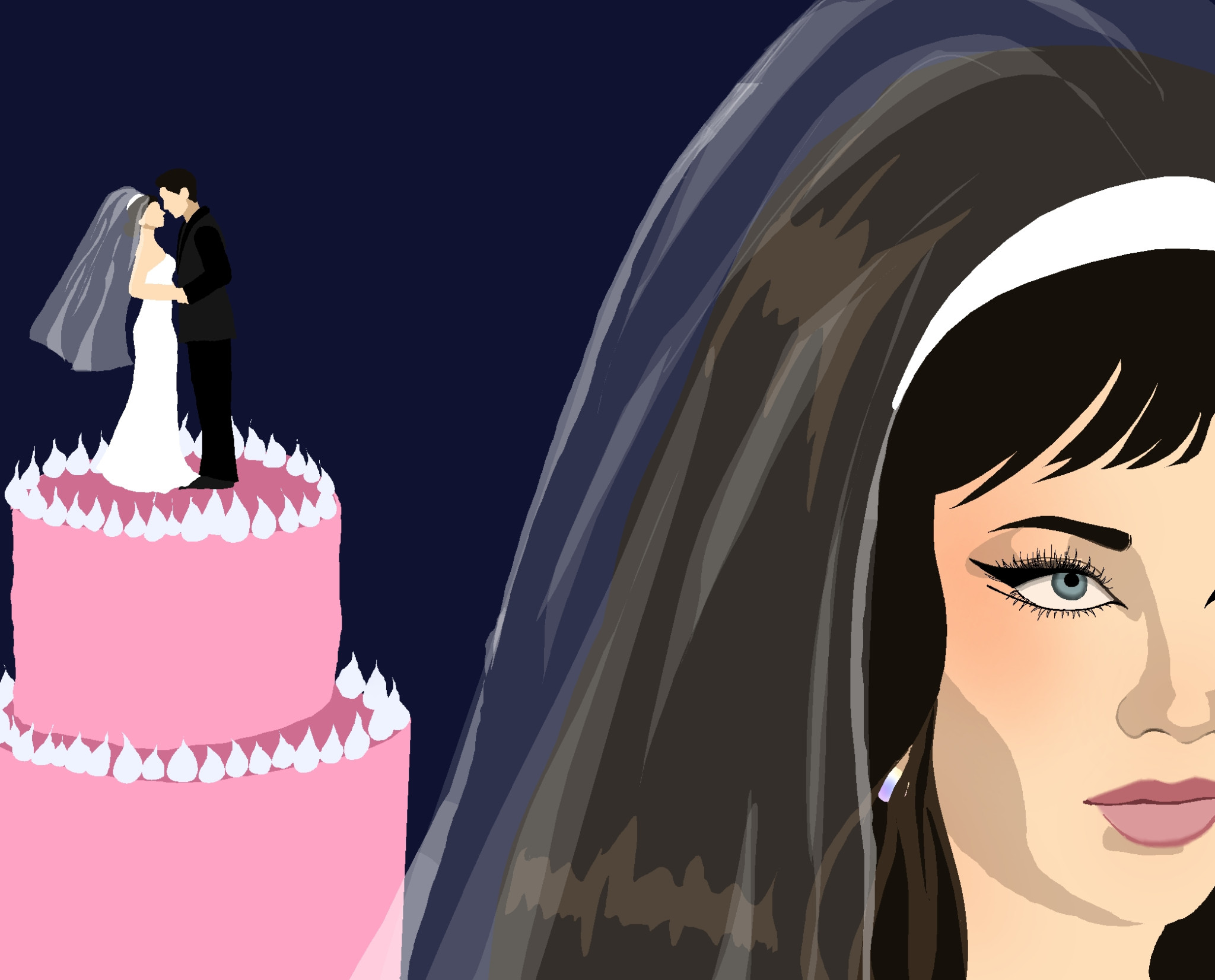In Sophia Coppola’s new film “Priscilla,” a 32-year-old Elvis proposes to a 22-year-old Priscilla Beaulieu. He doesn’t get on one knee, and he doesn’t ask her if she’ll marry him. He says, “You’re going to marry me.” This is Priscilla in a nutshell, it’s full of similar little moments of dramatic irony, where the audience is acutely aware of the wrongness of the situation, but no one in the film could ever acknowledge it.
“Priscilla” is a slow burn that covers Priscilla Presley’s relationship with Elvis Presley, from meeting to divorce. It’s the sobering story of a schoolgirl (Priscilla was 14 upon first meeting Elvis) whose obsession and fandom was cruelly manipulated. Instead of giving audiences the familiar glorification of Elvis, the movie follows Priscilla as she’s quickly whisked away into the megastar’s world, groomed to be his wife, and do nothing but his bidding.
Many comparisons have been made to Baz Luhrmann’s vastly different film, “Elvis,” which was released last year. But “Priscilla” is largely devoid of all the excessive glamour that defined Lurhmann’s film. When Elvis performs in “Priscilla,” the shot is silhouetted or shown on a blurry TV. Hardly any Elvis songs are heard at all. Instead, the film is more concerned with drawing attention to the obvious power dynamics in the relationship.
The film’s pacing is intentionally slow, even as it covers 14 years of events over its runtime. The film’s lack of glamorization brings the loneliness of being Priscilla Presley to life. For several sequences in the movie, Elvis leaves town, leaving Priscilla isolated in their massive, beautiful house. But even in solitude, she is defined by Elvis, and her whole life is still one of isolation. When she goes to school (a Catholic high school chosen by Elvis), people exclusively talk to her about her superstar husband. She returns home to Elvis’s friends and extended family, except for her late dog.
But the film is at its darkest when Elvis is around. The film’s true strength is in showing the unique fear that comes with being the wife of a universally adored celebrity.
From the very beginning, when 24-year-old Elvis takes interest in 14-year-old Priscilla, it’s unsettling. Elvis struggles to make awkward conversation, which makes it appallingly clear how little they have to talk about. As their relationship progresses, Elvis becomes more aggressive. Because he holds all the power, if Priscilla wears a color he doesn’t like that means she should never wear it again. Any small disagreement can easily become violent. The movie succeeds in shedding light on the disturbing and often neglected power dynamic that existed between Priscilla and Elvis.
“Priscilla” does not depict events in Priscilla Presley’s life after her divorce, making it an incomplete overview of a woman who went on to have an acting career and manage Elvis’s estate. Regardless, the movie accurately rewrites the story of Priscilla and Elvis from a fresh, disturbing, and triumphant perspective. When asked by a British talk show why they divorced, she said, “I left because I needed to find out what the world was like.”





